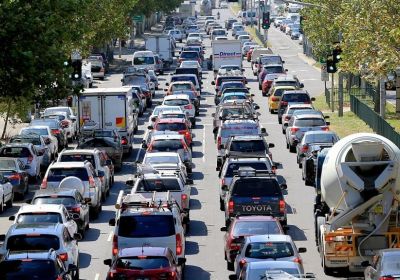
Mary Merkenich reports that four councils in Melbourne’s north east are taking legal action against the state government over its support for the $16 billion North East Link tollway.

Mary Merkenich reports that four councils in Melbourne’s north east are taking legal action against the state government over its support for the $16 billion North East Link tollway.

While some do not want to discuss the cause of Australia’s horrendous bushfires — runaway climate change — even fewer want to talk about how catastrophic fires are disproportionately affecting women and how it should be tackled. Mary Merkenich looks at the way women cope in emergencies and how the system treats them.

Melbourne Save Animals in Laboratories president Doug Leith spoke with Green Left Weekly’s Mary Merkenich about the real motivations behind animal testing.
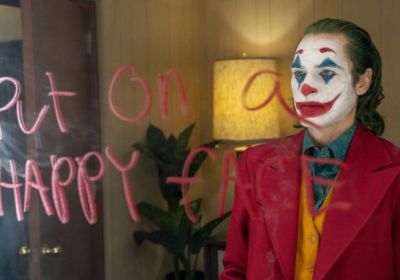
Great films spark debates, perhaps even controversy. Todd Phillips' Joker certainly has.
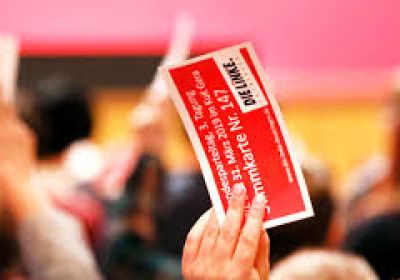
Electors in the German state of Thüringen cast their votes for a new state government on October 27. Thüringen was part of the former East Germany prior to reunification in 1990.
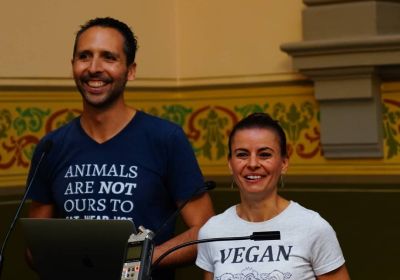
More than 200 people from across the country attended the annual Animal Activist Forum, which was held this year at Melbourne Town Hall over October 19-20.
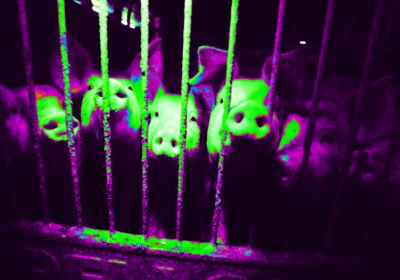
A Marxist critique of society remains incomplete if it does not consider the fact that, to make profits, capitalists have to not only exploited workers but also nature and animals.

In late June, New South Wales, Victoria and Queensland announced a joint review into the National Assessment Program — Literacy and Numeracy, known as NAPLAN. Many educators would be happy to see the end of standardised testing. But this review is no guarantee this will happen, even if NAPLAN is scrapped.
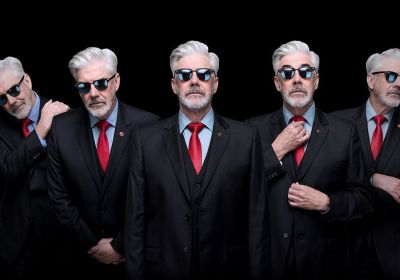
Shaun Micallef’s Mad as Hell on the ABC is marvellous comedy that combines humour with current affairs analysis.
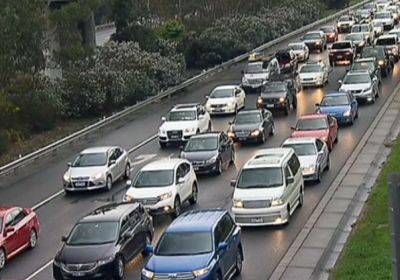
The Victorian Labor government is proposing to widen Melbourne’s Eastern Freeway to more than 20 lanes, arguing this would ease congestion on a thoroughfare that resembles a car park during peak time.
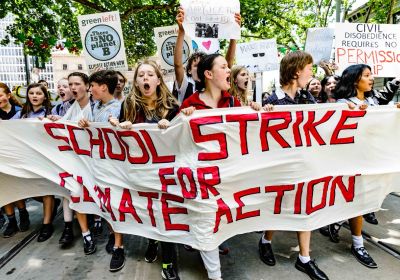
The Australian Education Union’s (AEU) Victorian branch voted to support a student-initiated call for a Climate Strike on September 20. The internationally coordinated strike, which will be held just days out from a United Nations Emergency Climate Summit, is seeking to pressure governments to take serious action to address the climate crisis.
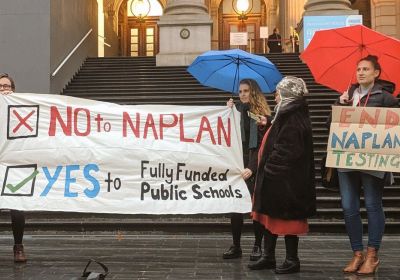
A small but determined group of teachers, parents and students gathered in the rain on May 3 on the steps of the Victorian Parliament to demonstrate their opposition to the NAPLAN tests.